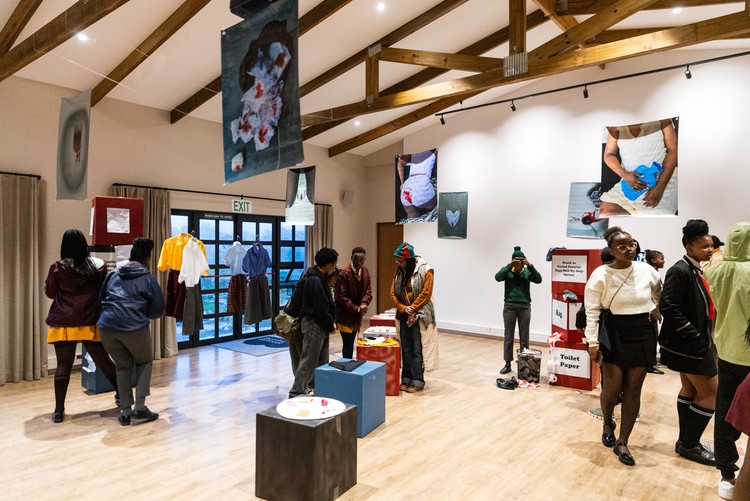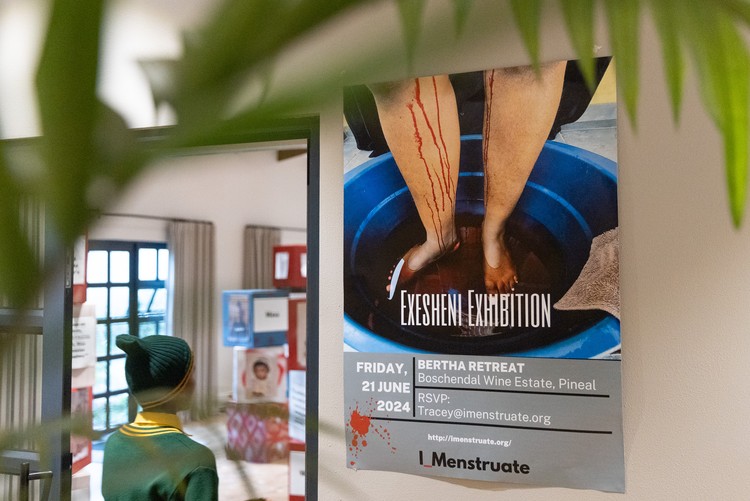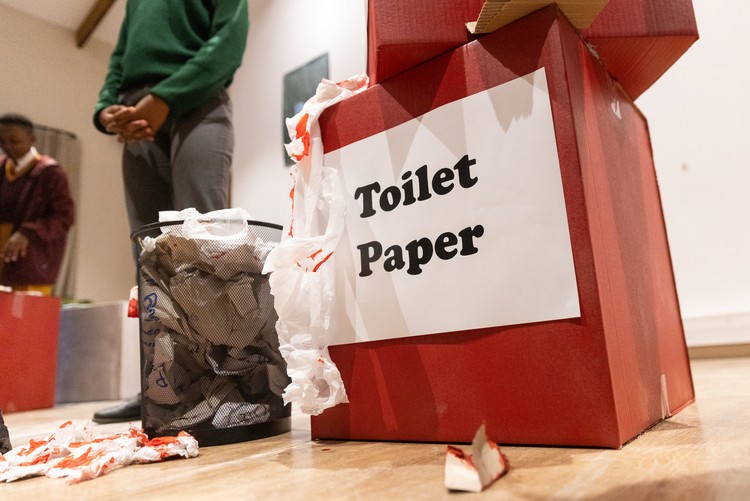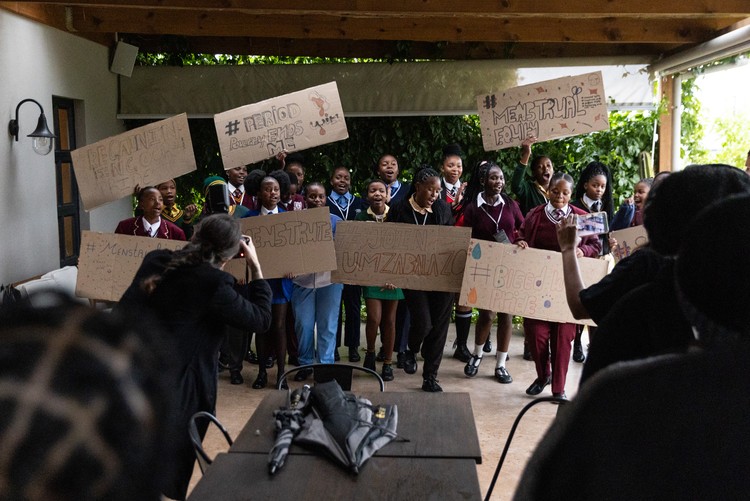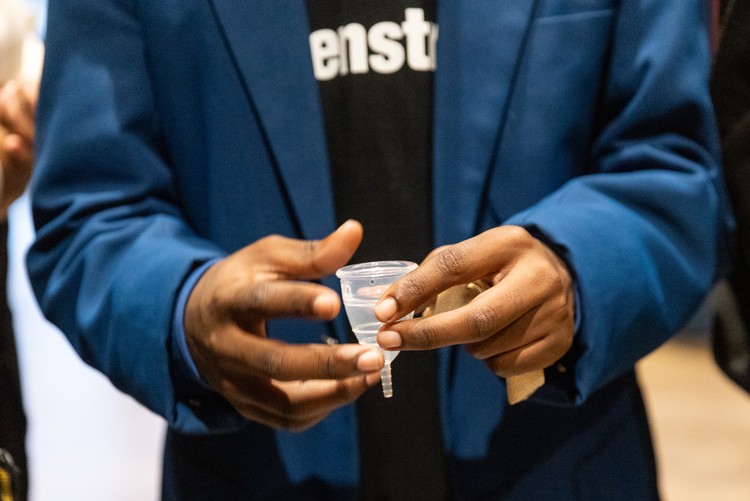President urged to make sanitary pads free
I_Menstruate Movement launches “period poverty” exhibition in Franschhoek
The Exesheni Exhibition by the I_Menstruate Movement opened at the Bertha Retreat in Franschhoek near Cape Town on Friday. The exhibition highlights the struggles learners face if they do not have access to sanitary products. Photos: Ashraf Hendricks
A survey of girls at 18 schools across the country found that more than 80% did not have regular access to sanitary towels. This finding was presented by the I_Menstruate Movement at the launch of the Exesheni Exhibition on Friday night.
The grassroots research report, “Bleeding in Silence: Barriers to menstrual hygiene among school girls in South Africa”, was published in October 2023. About 540 learners at two high schools in each of the nine provinces participated.
The organisation’s main aim is to eradicate “period poverty” in South Africa.
Founder of the I_Menstruate Movement Tracey Malawana said the Exesheni Exhibition (loosely translated as “that time of the month”) told the stories of menstruation through three generations and looked at how menstrual products have evolved. One photograph of Malawana’s grandmother highlighted that she had used “leaves and cloths”.
Other exhibits included photographs of sanitary pads and toilet paper soaked in blood. There were also a few school uniforms with red stains, symbolising the struggle that some learners face without access to proper sanitary products.
Malawana said the survey found that learners were using rags, cardboard, toilet paper and socks.
Comfort Mokopanele from Tshireleco High School in Kimberley, one of the artists in the exhibition, said, “Many of us do not have access to or money for sanitary pads, so we use some of these things when we get our periods.”
Malawana said the next step in the campaign is to lobby President Cyril Ramaphosa to make some menstruation products available for free.
“The cost of living is too high and menstrual products are too expensive. Parents are forced to choose between buying bread and sanitary pads,” she said.
The Exesheni Exhibition will be in Johannesburg in August for Women’s Month. It will then be taken to a few rural communities in October.
Loosely translated, Exesheni means “that time of the month”.
Grade 9 learner Comfort Mokopanele, from Tshireleco High School in Kimberley, had an exhibit with red-smeared covered toilet paper, a rag and a sock, to show the items many learners have to use during their periods.
Several learners sang and danced outside the exhibition as part of a protest performance with placards which read, “Period poverty ends with me” and “#MenstrualEquity”.
A learner examines a menstrual cup.
Support independent journalism
Donate using Payfast

Don't miss out on the latest news
We respect your privacy, and promise we won't spam you.
Next: Premier apologises for Gauteng government’s non-profit funding crisis
Previous: Gauteng government buys newspaper space to praise MEC
Letters
Dear Editor
I agree with the statement that some pad brands should be made free and still be of good quality.
Can we get the package wrap to have drawn pictures with instructions on how these pads should be disposed of in an environmental and hygienic friendly manner, to stop clogging of toilets and sewerage system?
© 2024 GroundUp. This article is licensed under a Creative Commons Attribution-NoDerivatives 4.0 International License.
You may republish this article, so long as you credit the authors and GroundUp, and do not change the text. Please include a link back to the original article.
We put an invisible pixel in the article so that we can count traffic to republishers. All analytics tools are solely on our servers. We do not give our logs to any third party. Logs are deleted after two weeks. We do not use any IP address identifying information except to count regional traffic. We are solely interested in counting hits, not tracking users. If you republish, please do not delete the invisible pixel.

